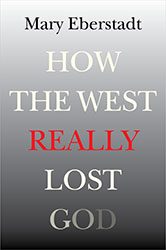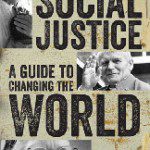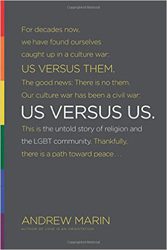 This past weekend, I attended the Annual Meeting of the Massachusetts Conference of the United Church of Christ. In the course of the weekend, we celebrated our conference’s decision to becoming “open and affirming” of gay, lesbian, bi-sexual, and transgender persons in 1984. Our Conference was a pioneer in the United Church of Christ and the nation in recognizing full equality to the GLBT community and in supporting marriage equality for all people. The congregation I pastor celebrates all loving marriages and welcomes families of all kinds.
This past weekend, I attended the Annual Meeting of the Massachusetts Conference of the United Church of Christ. In the course of the weekend, we celebrated our conference’s decision to becoming “open and affirming” of gay, lesbian, bi-sexual, and transgender persons in 1984. Our Conference was a pioneer in the United Church of Christ and the nation in recognizing full equality to the GLBT community and in supporting marriage equality for all people. The congregation I pastor celebrates all loving marriages and welcomes families of all kinds.
You can imagine the dissonance I experienced as I read Mary Eberstadt’s conservative sociological manifesto, How the West Really Lost God, connecting the “natural family” (two parent, male female) with Christian vitality and growth and, not so implicitly suggesting, that greater openness to the diversity of what I describe as healthy human experience is the source of Western Christianity’s downfall. I must say that Eberstadt’s book is extremely engaging and well-argued, and its recognition of the interdependent relationship of church and family – more God, more family; more family, more God – is provocative and worthy of consideration.
Though she claims to be unbiased, Eberstadt’s bias shines through. Christianity would be better off with strict prohibitions of abortion, homosexuality, divorce, IVF, and contraception, and clear theological teachings on heaven and hell. Christianity, she implies by her research, would be stronger if people had more babies and lived in traditional marriages. We would retain more youth if they married younger and had children earlier.
Family changes shape Christianity and vice versa. Yet, while institutional endurance is important, Jesus noted that those who seek to save their lives may lose their souls, and that followers of Jesus may need to take up their crosses in opposition to the world and, I would add, at times, the traditions of the church. I take this issue very seriously: Christian-based guilt has led to the bullying of homosexual youth and to suicides among gay teens; USA Christian-exported homophobia is leading to imprisonment and murder of homosexual males in Africa (other faiths are also violently homophobic); and woman have stayed in abusive marriages because they are told marriage is a unbreakable sacrament. Churches have lost potential leaders because of their opposition to IVF. I speak from experience here: whenever I think of my IVF grandson, I cannot imagine anyone standing in the way of this beautiful child’s birth. Or as Jesus would say, the Sabbath, that is, our religious rules are made for human well-being; humans are not made to suffer from religious rules, when healing is possible.
Still, Eberstadt has a point, but I will take it in a slightly different direction. Our congregations should make families key to our ministries, but we should support the health of families regardless of their constitution. During the course of my ministry, a woman asked that I pray for her to find a husband. She was surprised when I said I wouldn’t. But, then understood when I said, “I will pray for you to find a good husband. Anybody can find a husband; a good one is what you need.” The same applies to families: having more families and children is not necessarily beneficial to church or state. We need to support healthy families, and families that are egalitarian, promote the well-being of women and girls as well as men and boys, affirm same-sex parents, and promote communication and affirmation in loving ways. This is an issue for the church and state alike.
The church promotes healthy families by providing courses on parenting, balancing personal and family needs, communication skills, and intergenerational mentoring. The church is a place of family wholeness when it encourages people to learn to pray, to reach out to help as well as for help, and welcomes children and families of all kinds. The state also has a significant role. While Eberstadt’s critique of the welfare state as disempowering families has some merit, we have to take life as it is, not as it was a hundred years ago. A strong social, community, and church safety net is essential, and this means closing the gap between the rich and the poor, increasing the minimum wage, providing education to economically distressed parents, instituting universal health care, supporting day care for working parents, promoting universal employment, and moving from individualism to communitarian thinking. Lack of education and poverty increase all the ills that Eberstadt decries.
One last comment: Eberstadt’s “natural family” involves increased fertility. Many of the losses of mainstream Christianity in terms of membership result from the reality of smaller families and a greater gap between confirmation and marriage, according to Eberstadt. While I tend to agree with her findings, it is clear that greater fertility is ambiguous. Greater fertility in caring homosexual and heterosexual marriages may prove to increase church participation and provide greater support for aging adults. Yet, greater fertility is ecologically disastrous apart from a transformation of our society from a consumption-orientation to an emphasis on sustainability.
I appreciate Eberstadt’s work, but believe that many of the changes that appear to displace Christianity in the West may, in fact, be part of God’s great work of hospitality, transformation, and earth-care. In what appears to be death, the seeds of resurrection may burst forth in new and life-supporting ways.












